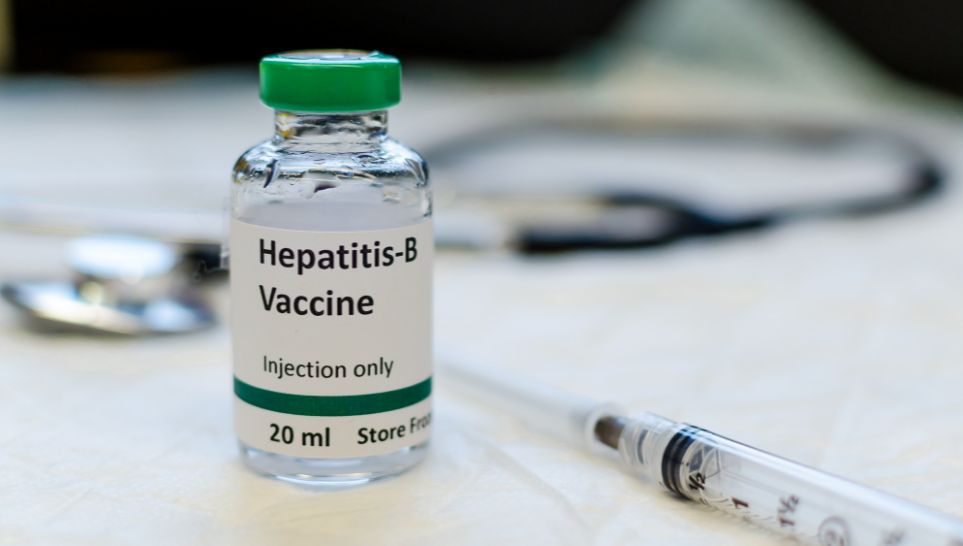
Like many Americans, you might think twice before getting a flu shot for several reasons. Perhaps you’ve heard rumors that flu vaccines don’t work or are potentially harmful to your health. Knowing your rights and understanding how to legally decline the flu vaccine is essential.
Can Your Employer Force You To Get the Flu Vaccine?
With the recent outbreak of COVID-19 and the controversy surrounding healthcare practices, many employees hesitate to consent to vaccines. The Centers for Disease Control and Prevention (CDC) and Federal Drug Administration (FDA) have approved the influenza vaccine, but you might have good reason to refuse it. Can your boss force you to get vaccinated anyway?
The answer is a tentative yes — in many states, an employer can implement a mandatory vaccination clause in their hiring terms, making it necessary for their employees to be vaccinated unless they want to risk being fired. This is because if the employer believes that their employees’ not being vaccinated may harm their business, they are fully within their right to act accordingly. However, this can change depending on where you live.
A business owner may legally require you to receive the flu vaccine if you work in a healthcare facility, childcare center, hospital, or senior services institution. Vaccination might also be mandatory if it’s essential to the business’s services. In other words, flu shots are obligatory when they’re necessary for facility operations.
Can You Lose Your Job for Refusing the Flu Vaccine?
Differing state laws can change the answer to this question, but the answer is more than likely yes. The flu vaccination might be part of your employment agreement and job description. If that’s the case, refusing the vaccine could terminate your contract.
Vaccination mandates in the workplace have some gray areas, and this is one of them. For example, flu vaccination might not be a requirement if you work for a preschool or childcare center. However, the school administration may have legal grounds to fire you if refusing the vaccine puts children at risk and hinders school effectiveness.
You’ll want to review company policies and your employment contract before deciding to reject the flu shot. You’ll additionally want to research how the state you live in treats this issue. If you’re unsure how to proceed, contact an experienced attorney. Our team at Sadaka Law can provide the legal guidance you need and stand up for your legal rights.
Valid Reasons for Declining Flu Shots

It’s that stuffy-nosed, achy-jointed, sore-throat time of year, and everyone’s talking about getting their flu shots. You might have some reservations, though. Immunization might not be a big deal to some people, but it could lead to various health complications.
Saying, “I just don’t feel like it,” isn’t a good enough reason to decline flu immunization. However, many employees have valid reasons to remain unvaccinated. Two of the most common objections come from the following:
- Medical reasons
- Religious reasons
Medical Exemptions
Under the Americans with Disabilities Act (ADA), employers cannot discriminate based on disabilities. The ADA covers a long list of physical and mental impairments that affect a person’s everyday life. You could add medical conditions that prevent safe immunization to that list.
Getting a vaccine can cause emergency health situations for some people. For example, you may have valid medical reasons to decline a flu shot if you have suppressed immunity. You could qualify for a medical exemption under the ADA and NJLAD.
The ADA also specifies that employers must reasonably accommodate workers with disabilities. Accommodations will look different for different industries and workplace environments. For instance, a healthcare facility won’t have the same accommodative services as a preschool, high school, or other institution.
Religious Exemptions
In many states, you can legally opt out of the flu vaccine on religious grounds. This exemption is now available to those with a sincere religious belief against immunization based on the tenets of their religion, thanks to the institution of the Equal Employment Opportunity Commission (EEOC) and Title VII of the Civil Rights Act. To qualify for a religious exemption, however, you must submit a written statement of your personal beliefs matching those outlined by your religious teachings.
It’s not enough to submit a written statement that you don’t like immunization practices. You must furnish evidence that your chosen religion disagrees with administering specific vaccines that would cause you to compromise your faith. Title VII offers exemptions for many different religions, including:
- Christianity
- Islam
- Judaism
- Buddhism
- Hinduism
Vegans are also included in legitimate religious practices and have a valid reason for objecting to the influenza vaccination. Sincere vegans do not use products derived from animals. This creates an ethical dilemma because flu shots contain eggs.
How Can Employers Accommodate Employees With Flu Shot Exemptions?

If you refuse a vaccine for legitimate medical reasons or religious beliefs, your employer must accommodate you under the ADA and Title VII. Accommodations may vary from facility to facility and might depend on your disability or religious objections. In general, you can expect these types of accommodations:
- Work-from-home opportunities: Some employees may have severe health conditions that prevent them from getting the flu vaccine and working at a public facility. If so, employers may provide work-from-home opportunities. This can enable at-risk employees to continue working safely.
- Private workspaces: Private workspaces allow at-risk employees to remain at the facility but are still relatively isolated from potential health hazards. This is also a great alternative if remote work isn’t possible.
- Personal protective equipment (PPE): Employees with a medical exemption can stay safe with protective equipment, such as face masks and gloves.
- Sanitization stations: During flu season, many employers will maintain hand sanitizer stations throughout the facility so team members can stay safe. They may also build handwashing breaks into the schedule and place Lysol spray, disinfectant wipes, and other sanitization products throughout the facility.
With these simple accommodations, employers can help employees maintain excellent health and stay productive throughout the year. However, remember that your boss may not have to implement some accommodations if they make the work environment unsafe or inefficient.
What Workplaces Require Flu Vaccination?
Some industries have a significant emphasis placed on their employees’ receiving the flu vaccination where some other industries may not. Some examples of workplaces that require flu vaccination include:
- General hospitals
- Special hospitals
- A senior services facility
- A child healthcare facility
- Emergency healthcare centers
Under some states’ laws, licensed healthcare workers must receive the vaccine. It could put their medical patients and fellow healthcare professionals at risk if they don’t.
Can You File a Lawsuit if Your Employer Fires You Over Flu Shot Refusal?

Getting an influenza vaccine isn’t always an easy decision. An employee may have legitimate health conditions or religious beliefs preventing immunization. However, the employee may also fear their employer’s reaction to the refusal.
If your boss fires you for refusing the flu vaccination, seek legal services from a trusted attorney immediately. Sometimes, the situation calls for filing a lawsuit. An experienced lawyer can review your written statement and know the best way to proceed.
Flu Vaccine FAQs
With the flu season already underway and medical professionals urging you to get the vaccine, you may have several questions. Below, we answer some of the most common questions people ask before immunization.
What Are the Flu Shot Side Effects?
Healthcare products can help protect your body against diseases and illnesses. However, they do come with side effects. The flu vaccine is no different, and you may experience these common reactions after receiving one:
- Redness
- Headaches
- Fever
- Nausea
- Soreness
Vaccination symptoms are typically mild and don’t last very long. If they grow more severe and persist over several days or weeks, consider seeking medical attention. These could be signs of a much more severe underlying health condition.
Some patients may have undiagnosed allergies or medical issues that could react negatively to the flu shot. If you’re allergic to any of the vaccine’s ingredients, you may experience these symptoms shortly after receiving it:
- Trouble breathing
- Behavioral changes
- Skin irritation
- Rapid heartbeat
- Dizziness
- Numbness
- Weakness
Although many other possible side effects exist, these are the most common. Research shows that flu vaccines may also cause severe health problems like seizures, traverse myelitis, peripheral neuropathy, and more. You can learn more about these and other medically contraindicated side effects here.
Who Should and Shouldn’t Get a Flu Shot?

The flu shot can boost your immune system’s ability to fight against the virus and keep you healthy during flu season. Anyone six months or older who would like to avoid getting the influenza virus is a good candidate for the vaccine. The vaccine is also mandatory for healthcare workers.
The flu vaccination isn’t for everyone. Some people should avoid it, including those in the following groups:
- Children less than six months old
- People who feel unwell on the immunization day
- Individuals with a record of adverse reactions to the flu shot
- People with known allergies (such as egg allergies) to flu vaccines or their ingredients
- People with approved medical exemptions
- People with approved religious exemptions
Do you think it might be unsafe for you or your child to get a flu shot? Talk to your doctor to see whether the vaccine is right for you.
Is It Possible to Have an Injury After Immunization?
The Centers for Disease Control and Prevention and Federal Drug Administration put their healthcare products through rigorous testing and analysis to ensure they work safely and effectively. However, injuries can occur following vaccination.
Vaccine-related injuries are not as rare as you might think. Some adults and children suffer an unexpected injury after receiving a vaccine, which changes their lives forever. In rare cases, some patients have even died from getting vaccinated.
If you experience an injury connected to the flu vaccine, you could pursue compensation under the National Vaccine Injury Compensation Program (VICP). Compensation won’t change the past, but it can make up for some losses and help you enjoy a better future. The VICP offers funding to help cover the following aspects of your injury:
- Current and future medical bills
- Mobility assistive medical equipment
- Lost wages and inability to earn
- Pain and suffering
- Emotional and mental health problems
Vaccine injuries can be overwhelming and difficult for you and your loved ones to process. You may have a lot of questions and concerns about the road ahead. Thanks to federal programs like VICP, you can get financial assistance and never worry about paying out of pocket for health care.
Consult an Experienced Vaccine Injury Attorney Today
If you’re hesitant about the flu vaccine, you may wonder how to legally decline the flu vaccine in New Jersey. Employers in most industries cannot force you to vaccinate, and an employee could refuse the flu shot on medically contraindicated or religious grounds. Vaccination exemptions require a written statement, but religious exemptions don’t apply to healthcare facility employees.
CDC- and FDA-approved medical products come with side effects, and you don’t want to ignore them if you have certain underlying health conditions or a history of severe reactions. Some people also experience significant injuries after receiving the flu vaccination.
Have you recently suffered from an injury and think it might be related to your flu shot? At Sadaka Law, we can help by evaluating your case, gathering evidence to support your claim, and filing a lawsuit to pursue fair compensation. Contact us today to schedule a consultation with our trusted vaccine injury attorneys.





